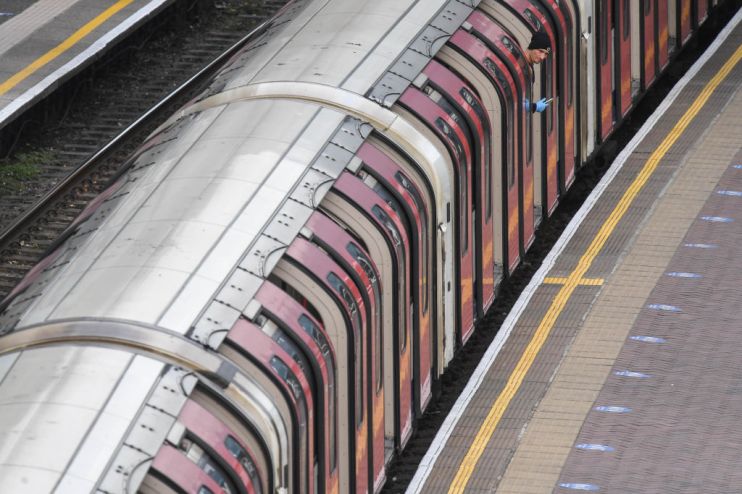Government must re-engineer the economy for a new way of working

The Bank of England predicts the UK economy will recover rapidly from the Covid-19 shock, as vaccines are rolled out across the country. But might a vaccine-resistant mutation and a failure to bring workers back to offices with sufficient speed scupper such optimistic forecasts? The threats are real and worth considering.
The chance of a vaccine-resistant mutation could emerge as a consequence of what is expected to be a worldwide relaxation of restrictions over the summer. We have seen shadows of that in recent days.
Companies like GlaxoSmithKline and CureVac would not be investing in a €150 million collaboration to develop a vaccine targeting variants if this wasn’t a very real prospect, even though variants could likely evolve to be less lethal.
Read more: Boris Johnson: People will need booster jabs every year for Covid mutations
The Prime Minister of Israel – a country roundly praised for its vaccine rollout – recently warned a virus strain resistant to current vaccines is inevitable.
If this comes to pass, rather than learn to live with Coronavirus (as we did with Hong Kong Flu), most Governments – risk-averse and well-practised in lockdowns – will likely restrict and lockdown as we head into the very autumn and winter period which saw a spike last year.
Rightly or wrongly, many Governments increasingly see lockdowns as a tried-and-tested formula. What then for any ‘great recovery’? Meanwhile, we have been told that annual jabs might be needed to combat Covid-19. However, uptake could be limited minus some catalysing event.
The greater risk to any recovery however is that many Governments and businesses are still ignoring the extent to which the work-from-home revolution has won hearts and minds – a global phenomenon. Will people be in a rush to jump back on the Northern Line?
Even if some are keen to return to their workplaces, we should assume flexi-working is now at least semi-entrenched. Many professional firms have said as much.
Technology made homeworking practical for many, especially white-collar workers. Thanks to lockdowns, the genie may now be out of the bottle. Given how reluctant many people may be to flood back into workplaces, and towns and cities generally – while firms are only too aware of the liability of workplaces becoming hotbeds of contagion (and the associated costs of being ‘Covid secure’) – are we ready for an economy built around greater homeworking?
For many businesses, saving money on offices could be welcome after the pandemic shock. But this could prove to be extremely dangerous for the wider economy, if not anticipated. It may therefore be incumbent on Governments to incentivise people back or, at least, help firms adapt.
Put simply, the impact of permanent homeworking on sectors as diverse as hospitality, construction, property, culture, automobile sales and energy could be catastrophic. These sectors are banking on workers returning and cities filling up.
Read more: London should double down in its commitment to arriving Hongkongers
What compounds the risk is that in the spider’s web of the economy, companies in ‘at-risk’ sectors employ law firms, accountancies and consultancies (hence all those professional firms advocating for greater homeworking could be making a rod for their own backs). For the aviation and tourism sectors, even if we assume there is a summer tourism boom, potential wariness about travel and confusion about what any rules may be, could prevent any great recovery (as would fresh lockdowns).
Of course, there could be pressure to rip the band-aid of support schemes off as things open up. But what if they are ripped off without re-engineering for the new normal or without incentivising people back?
Online and tech may thrive in this environment, and light industry may flourish. But if support schemes are pulled at just the wrong time – with the floodgates for unemployment starting to open – what of the wider impact? Those made redundant will have mortgages, tenancy fees and car loans. With yet more businesses gone, who would hire the newly-unemployed? Domino could hit domino, while that (unevenly-distributed) savings rate will not last forever. What then for public finances?
Given such risks, the Government could commit to live with Covid-19 now, guarding against future lockdowns and giving the private sector much needed certainty. Crucially, the Government and businesses must either offer inducements to bring workers back or, at least, re-engineer the economy for one where flexi-working is here to stay.
This may be in the form of rate cuts, or remodelling high streets and shopping centres for ‘experiences’ – a trend underway pre-Covid, but one which may need to accelerate. It could mean helping firms move more operations away from large cities or towards greater online delivery. The impact of doing nothing may not bear thinking about. To ensure 2021 is not a repeat of 2020 we need more than just wishful thinking.
Read more: City Spirits: Champagne and Cognac the perfect recipe for Valentine’s Day